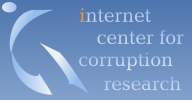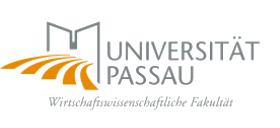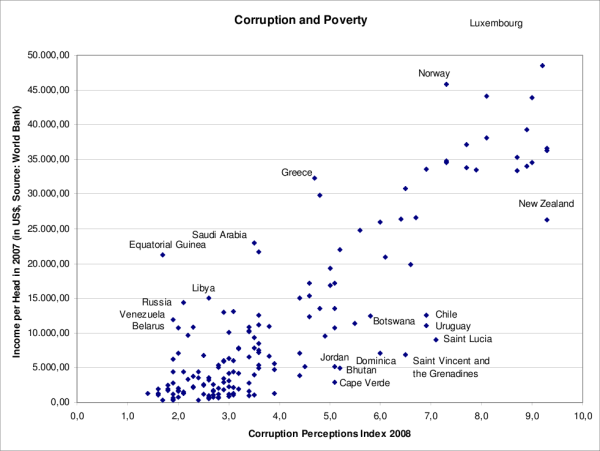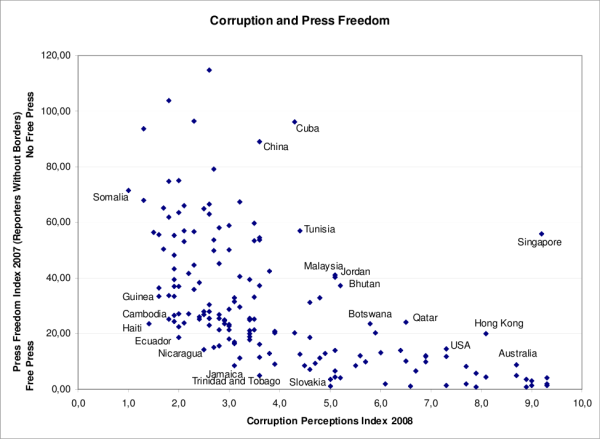
| Home → Corruption Perceptions Index → 2008 → UP's Press Release |  |
| Home | |||
| Contact information | |||
| Research Area | |||
| Corruption Perceptions Index | |||
| 2009 and later | 2008 | 2007 | |
| 2006 | |||
| 2005 | |||
| 2004 | |||
| 2003 | |||
| 2002 | |||
| 2001 | |||
| 2000 | |||
| older indices | |||
| childhood days | |||
| Lecture and Workshops |
| Chair in Economic Theory Lehrstuhl für Volkswirtschaftstheorie |  |
Press Release: The University of Passau compiles the 14th Corruption Perceptions Index (CPI) on behalf of Transparency International (TI). Prof. Dr. Johann Graf Lambsdorff, who designed the CPI, provides an academic viewpoint on this year's findings.
Passau University, 23 September 2008: The 2008 CPI index is out today, informing interna-tional investors, legislators and the global public about the performance of their country. The CPI is the most influential governance indicator and will continue to stir debate and efforts for reform, alongside with academic research into the causes and consequences of corruption.
Research has proven a strong link between poverty and corruption. A simple plot reveals a close association between a good performance in this year's CPI and income per head. This is in line with academic research, extensively surveyed in a recent publication (Johann Graf Lambsdorff, The Institutional Economics of Corruption and Reform, Cambridge University Press, paperback version 2008). According to estimates provided there, an improvement in the CPI by one index point (out of ten) increases capital inflows by 0.5% of the country's gross domestic product and raises productivity, leading to an increase in average income by 4%. These figures can help each country assess the annual losses that arise due to corruption - and mobilize the resources necessary to contain malfeasance.
Poverty, however, need not entrap a country in a downward spiral of bad governance and economic deprivation. As highlighted in the chart, countries such as Cape Verde, Chile, Uruguay, Bhutan, Botswana, Jordan and some Caribbean Islands continue to exhibit low levels of corruption despite being relatively poor. Some of these countries can thus provide inspira-tion for reform. To the contrary, various countries rich of natural resources perform particularly bad. This portrays the well-known resource curse and shows that affluence need not be helpful in containing corruption.
Other methods for reform, not requiring an affluence of resources, have proven effective in reducing corruption. Some countries focus their efforts on rather "top-down" methods such as increased supervision and repressive action. While important for anticorruption, top-down measures should be complemented by "bottom-up" approaches, which tend to be at least as vital. Press Freedom is one of the most prominent of these approaches and has been shown in various publications to belong to the most effective methods for anticorruption. The chart below depicts the simple association between the 2008 CPI and Press Freedom as measured by Reporters without Borders in 2007, revealing that a freer press (that is, lower values in the index) is associated with less corruption (a higher CPI score). Research has shown that this association is statistically robust. Governments are thus well advised to avoid laws, regulations and economic interests that influence media content, abstain from political influence over media content, and disallow repressive action.
In a similar spirit, the impact of judicial and prosecutorial independence on levels of corruption has been investigated, showing that independence can be effective in reducing corruption. Merely cosmetic change to the legal code is not what is needed for reform and tends to camouflage more than to help. Independence must effectively insulate the judiciary from po-litical influence. In this respect the United Kingdom's drop in the CPI is remarkable. While the country scored 8.6 in 2006 and dropped to 8.4 last year, this year's score of 7.7 marks a seri-ous deterioration, hardly ever seen before in the 14-year history of the CPI. A likely reason for this drop rests with the UK government's intervention into the Serious Fraud Office's investi-gations of BAE Systems' alleged bribing of Saudi Arabian officials. The British High Court rated this as an interference with the course of justice, where the government had given in to blatant threats from Saudi Arabia. This serious violation of the rule of law seems to have tarnished the United Kingdom's reputation worldwide, now captured in a lower CPI score.
This, at the same time, is the good news that goes along with today's publication of the CPI. Many countries have started to guard their reputation. Governments observe that the fight against corruption is a key for their international reputation, for the credibility of their policies and for the respect that their citizens urge for. The CPI honors sound practices but also re-cords misbehavior that has gone unnoticed before.
Details of Transparency International's Corruption Perceptions Index 2008 are available at: http://www.icgg.org and http://www.transparency.org/policy_research/surveys_indices/cpi.

